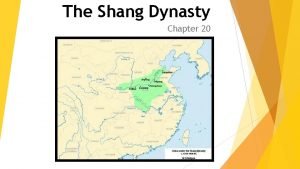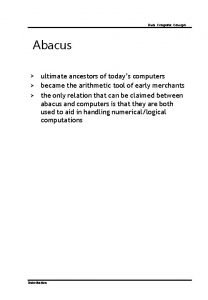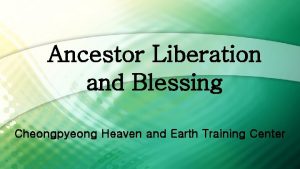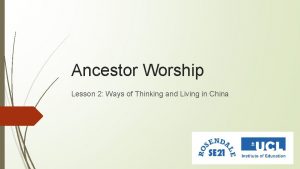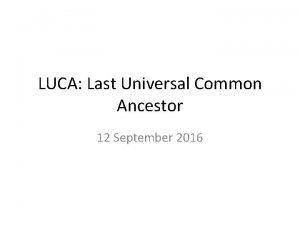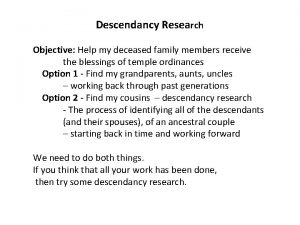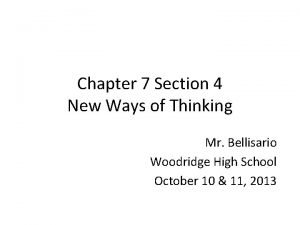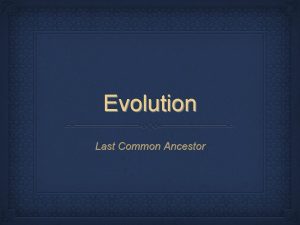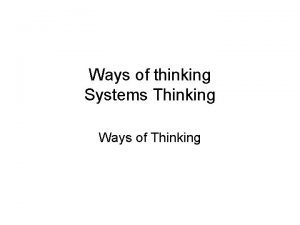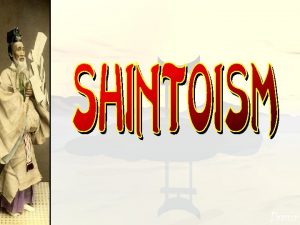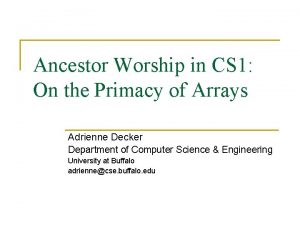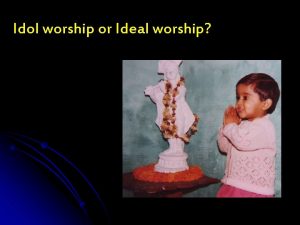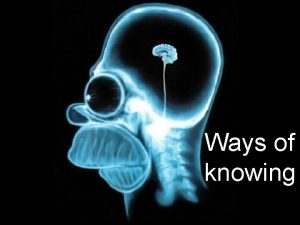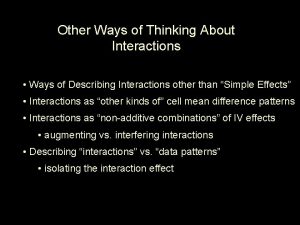Ancestor Worship Lesson 2 Ways of Thinking and
















- Slides: 16

Ancestor Worship Lesson 2: Ways of Thinking and Living in China

Ancestor worship A large proportion of people in China worship their ancestors - that is, their parents, grandparents, great grandparents, and their forefathers.

Ancestor worship plays an important role in the Chinese legend of Hua Mulan. Do you know the story of Mulan? Think Pair Share Disney’s Mulan 18 th century painting of Hua Mulan

Read the story of Mulan Think Pair Share Why did Mulan choose to fight? How does the story show respect for parents and ancestors?

Praying to the Ancestors in Disney’s Mulan

3500 years ago, the rulers of China offered food and wine to their ancestors in these magnificent bronze vessels

The Chinese believe that spirits of ancestors live in an afterlife parallel to the real world – and because they are now supernatural beings they are able to move between the two worlds when needed. They are also able to communicate directly with the Gods. So Chinese people seek their ancestors’ support and guidance.

Oracle bones Some of the earliest evidence of ancestor worship comes from “Oracle bones”.

Communicating the ancestors Oracle bones were the shoulderblades of oxen, or the undersides of tortoise shells. This was how the ancient Chinese communicated with their ancestors and it was the origin of Chinese writing. The questions you wanted to ask your ancestors were carved into the bone.

Communicating the ancestors The bones were used for telling the future. A priest applied a heated metal spike to one side of the bone. Then, from the way the bone cracked, they would interpret the ancestors’ answers to the questions that had been posed.

Ancestor worship remains important in China today Ancestor shrines are more prevalent in Southern China, Hong Kong & Taiwan, but less so in northern cities like Beijing. Ancestor shrine in modern-day home

Ancestor Worship The Qingming Festival - 清明节(qīngmíng jié)

Ancestor Worship The Zhongyuan Festival - 中元節 (zhōngyuán jié) Also known as the Hungry Ghosts Festival - the ancestors are the ghosts that need sustaining with food and material things, including special money that is burned in the streets during the festival.

xiào (pronounced see-ow) 孝 China has a word xiào that means respect for parents, elders and ancestors Write the character into your books and add the English translation

xiào 孝 Do you think respect for parents, elders and ancestors is important today? Why or why not? Share thoughts as whole class

Reflection Reflect on your own attitudes towards your ancestors: • Do you think respect for parents, elders and ancestors is important? Why or why not? • Do you know about the lives of your grandparents and great grandparents? • Would you like to know more? How could you find out more? Do you want to? 孝
 Shang dynasty map
Shang dynasty map Gods ways are not our ways
Gods ways are not our ways Rhizoid
Rhizoid Ancestor of chordates
Ancestor of chordates Ancestors prayer
Ancestors prayer Oh mo nim
Oh mo nim Abacus komputer
Abacus komputer Last universal common ancestor
Last universal common ancestor Cheongpyeong ancestor liberation
Cheongpyeong ancestor liberation Mulan praying to ancestors
Mulan praying to ancestors Ancestor tree
Ancestor tree Ancestor
Ancestor Last universal common ancestor
Last universal common ancestor Horse ancestor
Horse ancestor Descendancy research
Descendancy research Lamarck theory of evolution notes
Lamarck theory of evolution notes Chapter 7 section 4 new ways of thinking
Chapter 7 section 4 new ways of thinking
